Giới thiệu danh sách 30 nhà sản xuất robot trên thế giới năm 2018
Fanuc
Parent company: Fanuc Corporation
Number of robots installed worldwide: 400,000

Fanuc is a specialist factory automation company and is believed to be the largest industrial robot manufacturer in the world, in terms of the number of robot arms installed in factories worldwide.
Having benefited hugely from its historic relationship with General Motors in the US, the company is now making inroads into China, currently the world’s largest buyer of industrial robots.
In fact, so successful has the company been in China that it is finding it difficult to keep up with orders, and is expanding its manufacturing facilities in the country.
The company recently marked the production of its 500,000th industrial robot, and has been expanding its product range to include new types of robots.
Yaskawa Motoman
Parent company: Yaskawa Electric Corporation
Number of robots installed worldwide: 360,000

Yaskawa Motoman is also a specialist factory automation company, specialising in industrial robots.
It has a huge business in motion control systems such as servo motors, the technology which industrial robots are said to have grown out of.
Like most large robot companies, Yaskawa also now offers information technology services, which collectively represent the key competitive differentiator for big industrial companies going forward.
Interestingly, Yaskawa is the company which coined the phrase “mechatronics”.
ABB Robotic
Parent company: ABB Group
Number of robots installed worldwide: 300,000

ABB is the only European company among the top 10 robot makers, and has wide-ranging interests across many industries.
Most importantly, in terms of the company’s bottom line, ABB is a supplier of power generation equipment.
However, in terms of factory automation, perhaps the most important thing about ABB is its IIoT solution, Ability.
Ability is ABB’s network for connecting its robots and other equipment to enable precise monitoring and control, and is probably one of the most complete solutions of its type.
The company has also launched new types of robots, including the eye-catching two-armed YuMi robot.
Kawasaki Robot
Parent company: Kawasaki Heavy Industries
Number of robots installed worldwide: 110,000

Kawasaki is probably best known for being a builder of motor bikes, but it is also one of the biggest manufacturers of robotics equipment in the world.
The company has seen tremendous success with its new collaborative robot, the duAro, of which it has sold 2,000 units in China.
Kawasaki says it is planning to expand its robot production to include more collaborative models.
Nachi-Fujikoshi
Parent company: Nachi-Fujikoshi Corporation
Number of robots installed worldwide: 100,000

Like many of these large industrial robot makers, Nachi-Fujikoshi has historic roots going back around a century.
Nachi specialises in industrial robots and machining tools and machine components.
It recently launched a new type of robot for the electronics manufacturing industry, which is probably growing faster than the automotive trade as a buyer of industrial robots.
Denso Robotics
Parent company: Denso Corporation
Number of robots installed worldwide: 95,000

Denso is probably slightly better known as a supplier of car parts. The company was spin-off from Toyota Motor Company.
At the time, Toyota was looking for ways to make its production process more efficient to compete with the US auto giants.
Denso is now not only a huge car parts company, it is also a leading supplier of industrial robots.
Its combination of skills probably places Denso in a strong position going forward as electric vehicles become more popular.
Kuka Robotic
Parent company: Midea Group
Number of robots installed worldwide: 80,000

While it may have been controversial from some people’s point of view, Midea’s acquisition of Kuka places the robot maker in the ideal position to make the most of the growing market for robots in China and Asia.
Even if it sells a relatively limited number to outside companies, the demand from Midea will probably see Kuka grow significantly this year.
Midea is said to be the world’s largest manufacturer of household appliances such as washing machines and dishwashers.
Kuka is probably one of the most innovative companies in the industrial robotics market, and it’s launching new designs for robots for a variety of applications.
Mitsubishi Robotics
Parent company: Mitsubishi Electric Corporation
Number of robots installed worldwide: 70,000

Mitsubishi is a huge, sprawling conglomerate and is separated into two distinct companies. The one which owns the robotics division is Mitsubishi Electric.
This division technically has little or nothing to do with the motors division – Mitsubishi is, of course, a well-known automotive brand.
Although factory automation is a relatively small part of Mitsubishi Electric, the robotics division is one of the largest manufacturers of industrial robots in the world.
The company is the latest to announce that it will be launching a collaborative robot model.
Epson Robots
Parent company: Seiko Epson Corporation
Number of robots installed worldwide: 55,000

Seiko is, of course, the historic and famous watchmaker. It started building robots to enable it to make its watches more accurately and more efficiently.
Seiko Epson only subsequently decided to market its robots to outside companies, and is now one of the largest suppliers in the world.
Seiko lists robots in its “precision products” category, and is looking to grow the division going forward, with plans to launch collaborative robots in the future.
Stäubli Robots
Parent company: Stäubli Holding
Number of robots installed worldwide: 45,000

Stäubli has been around since the 1890s in some form or another, starting out in the textiles business.
The company has acquired two historic brands – Jacquard looms and Unimation, the first industrial robot company – over the course of its lifetime, and is now one of the largest suppliers of automation equipment in the world.
Stäubli has launched a new collaborative robot and is investing more into its software business.
Foxconn Robot
Parent company: Hon Hai Precision
Number of robots installed worldwide: 40,000

The figure of 40,000 is probably overly conservative and will probably be wildly inaccurate by the end of this year because Foxconn has made it clear that it is determined to automate the entire world – or at least its own production plants.
Some of its factories have very few humans in them, and as robots become more suited to electronics manufacturing, Foxconn is likely to establish even more fully automated facilities.
Foxconn, as many readers will know, is a contract manufacturer whose biggest client is Apple, the largest company in the known universe.
Foxconn is probably unlikely to sell its robots to outside companies any time soon as it’s struggling to keep up with Apple iPhone orders.
Comau Robot
Parent company: Fiat Chrysler Automobiles
Number of robots installed worldwide: 30,000

Comau is part of one of the world’s largest automotive groups, but it does not rely on its parent company for everything.
The company has launched a range of innovative products, perhaps most notably the largest collaborative robot on the market.
Collaborative robots are generally thought of as small, but Comau believes there is a gap in the market for a cobot with a significantly larger payload.
The company has also been making progress in the software side of the business and in the development of IIoT technologies.
Omron Adept
Parent company: Omron Corporation
Number of robots installed worldwide: 25,000

Omron acquired Adept some time ago and has developed many different types of automation technologies in recent years.
Its table-tennis-playing robot is probably not typical of its output since most of the machines it supplies are for the automotive and medical industries.
The company also has a large business in sensors and other components.
Universal Robots
Parent company: Teradyne
Number of robots installed worldwide: 20,000

Universal Robots is widely believed to be the world’s first manufacturer of what are now called “collaborative robots”.
The company’s innovative machines offered many new things, mainly the opportunity to use smaller, less expensive robots, and use them in a variety of settings without the need for cages to separate them from human workers.
Some of the technical features which allow a robot to be classed as “collaborative” are stipulated by organisations such as the ISO, and it would be interesting to find out if any robots are being marketed as being “collaborative” when they do not have the necessary certificate.
Universal’s fantastic success is probably partly due to the fact that its robot was the first cobot. But perhaps more crucially, the machine is an excellent design which is being emulated by other robot makers.
Rethink Robotics
Parent company: Rethink Robotics
Number of robots installed worldwide: ~

One of the early collaborative robot makers, Rethink Robotics has been generating a lot of interest lately.
With many new technologies, like collaborative robots, one of the main challenges is explaining how it can be used.
This is something the main cobot makers are putting more time and effort in – and it looks to be paying off.
Small manufacturers from a variety of sectors are seeing their productivity increase and their final product reach a higher standard.
Siasun Robot
Parent company: Shanghai Siasun Robot & Automation Company
Number of robots installed worldwide: ~

Probably the largest robot maker to have emerged from China, and certainly the most well known.
Siasun became the first Chinese robot maker to join the US Robotic Industries Association.
The company has big plans. Not only has it launched heavy-duty industrial robots, it also wants a slice of the home-made pie – and it thinks offering elderly people a home-help robot is the way to go.
HRG Robot
Parent company: Hit Robot Group
Number of robots installed worldwide: ~

HRG – full name Hit Robot Group – is probably of a similar size to Siasun, but we’ll have to confirm that going forward.
For now, what we do know about this company is that it has produced some interesting robots with some fascinating applications, such as the ones used in jade production lines.
HRG itself claims to be the leading robot company in China, so the competition with Siasun is likely to be interesting to watch over the next few years.
Doosan Robotics
Parent company: Doosan Corporation
Number of robots installed worldwide: ~

Doosan is a large, South Korean conglomerate with interests in almost every industry on Earth, in particular, power plants and construction.
Why the company has decided to launch a collaborative robot is anyone’s guess – the company itself says it became interested in the technology because collaborative robots are not required to be caged off and can be used by humans almost like any other power tool.
Doosan says it has identified markets for the cobot, and is firmly committed to the venture.
Techman Robot
Parent company: Quanta Storage
Number of robots installed worldwide: ~

An interesting design and confident marketing approach, Techman is particularly interested in the Japanese market.
The company is actively looking for partners in Japan, but it’s also made appearances at Hannover Messe, in Germany, so it’s not limiting itself.
Techman is looking to ship more than 2,000 units this year.
Hanwha Techwin
Parent company: Hanwha Group
Number of robots installed worldwide: ~

Hanwha is said to be one of the largest conglomerates in South Korea – or one of the so-called “chaebol” companies.
Robot making is probably, therefore, a very tiny part of its operation, and like Doosan, the company is probably just giving free rein to its inquisitiveness about the technology.
Hanwha says its collaborative robot is the first of its kind in South Korea and the company plans to use it in its own operations.
Hyundai Robotics
Parent company: Hyundai
Number of robots installed worldwide: ~

Probably the best-known of the South Korean chaebols, Hyundai is more famous for its cars than its shipbuilding.
But in the shipbuilding sector, Hyundai is huge. And the robotics division seems to have a lot of potential in the shipbuilding sector.
The company has now separated its robotics division and says it wants Hyundai Robotics to challenge the Japanese robot makers for a top-five position.
Bosch Robot
Parent company: Bosch
Number of robots installed worldwide: ~

Bosch could be described as the Midea of Germany and Europe, since it is a massive supplier of household appliances.
The company has a presence in a vast array of markets, and building robots is just a small and relatively new part of its operation.
The industrial robotic arm it has demonstrated is probably mostly going into the hundreds of Bosch factories worldwide.
But its collaborative quality will probably make it an attractive purchase for outside companies if Bosch were to market it to others.
Kawada Robot
Parent company: Kawada Group
Number of robots installed worldwide: ~

Kawada is a Japanese company that usually concerns itself with massive construction projects, such as bridges.
However, its two-armed, collaborative humanoid industrial robot is probably one of the most innovative machines on the market.
Already being put to use in a number of factories, the so-called “NextAge” robot is being presented as the next generation of robot worker.
Capable of a variety of complex tasks, NextAge is helping Kawada find new partners in a variety of sectors.
TAL Brabo Robot
Parent company: Tata
Number of robots installed worldwide: ~

TAL is the robotics division of the Indian industrial giant Tata. The unit has demonstrated a machine it calls “Brabo”.
The Brabo is said to be the first Indian-made industrial robot and is aimed at the automotive trade.
Tata, the parent company, is one of the world’s largest automotive companies.
Toshiba Robotics
Parent company: Toshiba Corporation
Number of robots installed worldwide:

Toshiba, a massively large Japanese conglomerate, used to be one of the world’s best-known companies before MP3 music players emerged.
The company is still one of the leading electrical and electronics companies in the world.
ST Robotics
Parent company: ST Robotics
Number of robots installed worldwide: ~

An interesting company with a large following, ST Robotics has demonstrated what it says are “superfast collaborative robots”.
Collaborative robots are generally thought to be safer because they move more slowly, so it would be interesting to see if speed becomes a differentiating factor in this market.
Delta Electronics
Parent company: Delta Electronics
Number of robots installed worldwide: ~

Probably the only Taiwanese company in this list, apart from Foxconn, Delta Electronics is particularly active in the industrial automation market.
It produces a range of SCARA and articulated robots.
Kinova Robotics
Parent company: Kinova Robotics
Number of robots installed worldwide: ~

An interesting startup company which has produced a robotic arm light enough and slender enough to fit onto vehicles such as wheelchairs and mobile logistics platforms.
Having recently raised funding of $25 million, the company is in the process of further developing its applications and finding new markets.
Franka Robot
Parent company: Franka
Number of robots installed worldwide: ~

Another interesting startup with a collaborative robot that is said to be able to build copies of itself.
Interestingly enough, Franka is backed by Kuka and Foxconn among others.
The possibility of automating parts of the production process that larger robots were previously unable to do is probably what motivates these investors.
Mecademic Robot
Parent company: Mecademic
Number of robots installed worldwide: ~

The robot produced by Mecademic is so small that it could be described as a miniature version of an industrial robot.
If you’re planning to make tiny things, like watches, for example, this is probably the machine for you.

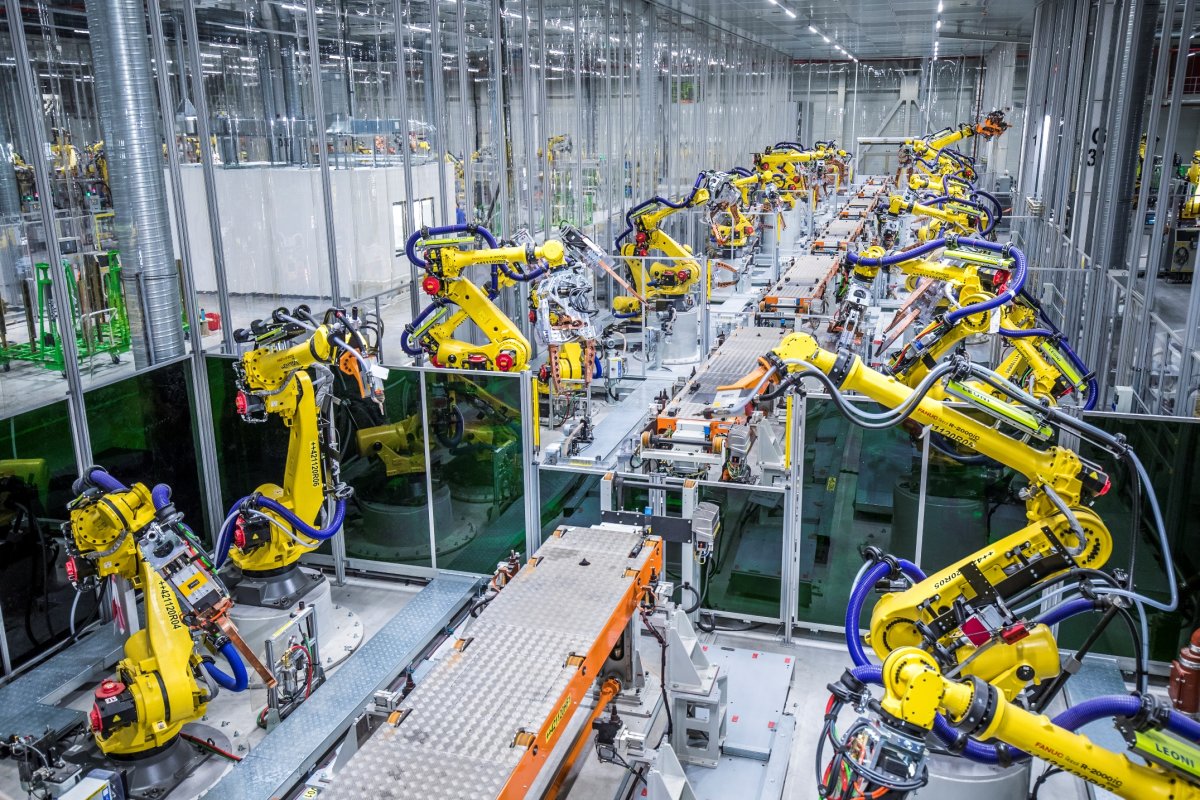
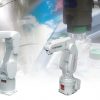
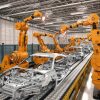
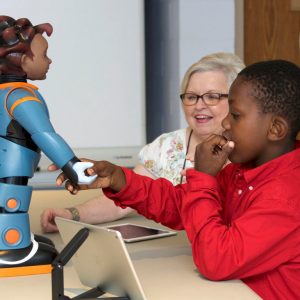
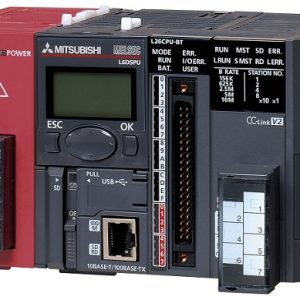
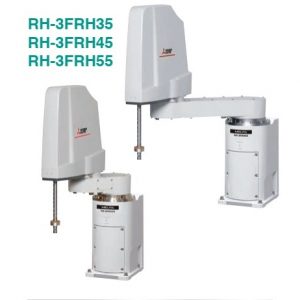
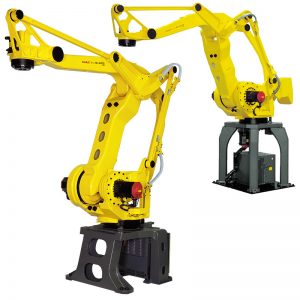
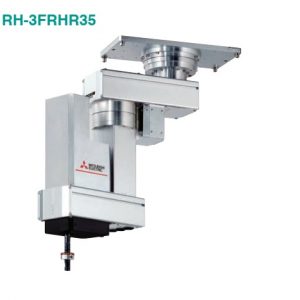
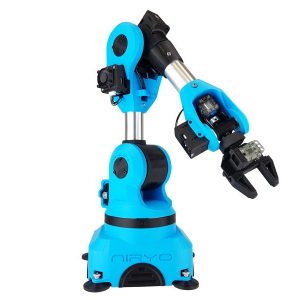
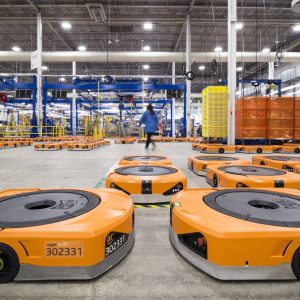
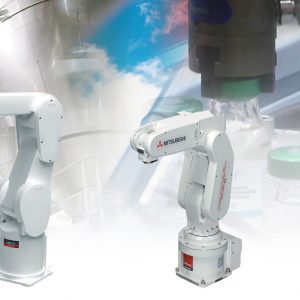
Đánh giá
Chưa có đánh giá nào.